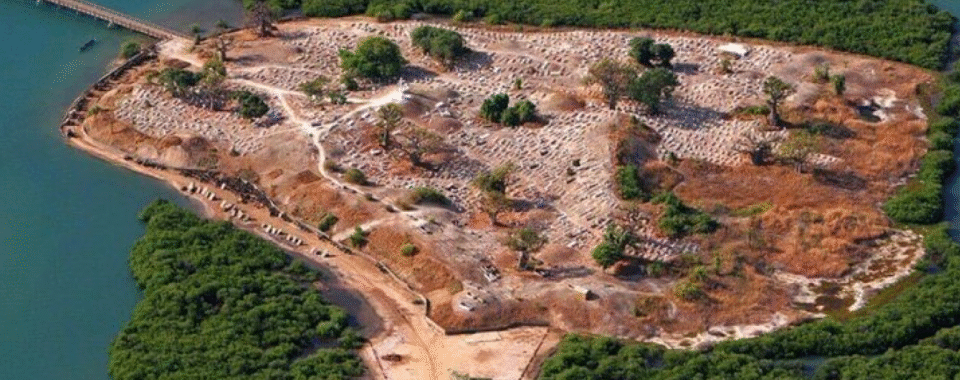By choosing to visit this island, travelers are making more than a tourist detour: they are participating in the promotion of an exemplary model of cohabitation, the preservation of a rare site, and the recognition of a unique collective memory.


It's curious to note that amidst so many exotic destinations, some gems remain hidden. Fadiouth, this small, atypical island located off the coast of Joal, captivates with its seashell-covered floor, its peaceful atmosphere, and its symbolic richness. Little known to the general public, it nevertheless reveals a rare facet of Senegal: the harmony between nature, culture, and spirituality.
“How can an island born of shells carry so many stories and emotions? Fadiouth is the quiet echo of deep Senegal.”
A unique place, born from the sea and beliefs
Connected to Joal by a long wooden bridge, Fadiouth Island intrigues from the very first steps. Its ground, formed entirely of white shells, gently crunches underfoot, as if to recall the unique identity of the place. Here, the sacred and the everyday blend modestly: between the millet granaries on stilts, the canoes gliding on the calm waters, and the mixed cemetery where Muslims and Christians lie side by side.
This apparent calm conceals an immense cultural strength: that of a people who live their diversity without tension, with respect and continuity.
A timeless immersion
Visiting Fadiouth isn't just about discovering a place; it's about a change of pace. Here, there are no cars, no noise. Just the voices of the locals, the laughter of children, and the ebb and flow of the tide. Passionate local guides recount the stories of their ancestors, the meaning of the symbols, and the legends surrounding the sacred baobabs.
Visitors often leave with the feeling of having experienced a parenthesis. Not spectacular, but deeply touching.
“You don’t leave Fadiouth the same way you discovered it. You leave a little of yourself there, and you take a lot of peace with you.”
A treasure to be preserved
Fadiouth remains fragile in the face of rising waters and social change. Yet it embodies a silent success: that of a living heritage, passed down from generation to generation, in simplicity and balance.



